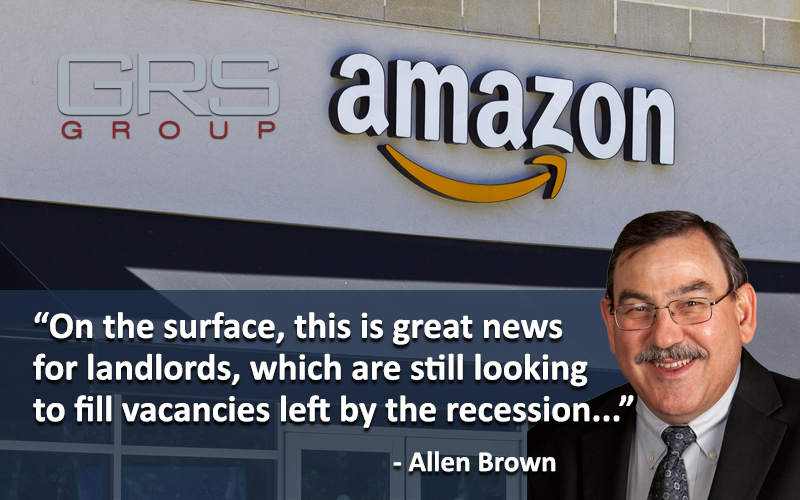
Allen Brown
Director, GRS | Title
(480) 428-5575
[email protected]
Amazon has surprised the retail real estate industry again, but this time it’s in a good way. Maybe.
The company will reportedly open 3,000 of its Amazon Go cashier-less stores by 2021. It is currently operating a handful in Seattle and Chicago, which are roughly 2,000 square feet, with a total of 10 planned to be in operation by the end of the year and 50 by the end of 2019. Confirmed stores are coming to New York City and San Francisco.
On the surface, this is great news for retail real estate landlords, which are still looking to fill vacancies left by the recession, and by, well, Amazon, which is supposedly a main culprit that has put many physical stores out of business in the first place.
But will Amazon Go simply replace vacancies or start replacing stores that are already there?
Well, some retail observers are already signing the death certificate upon the Amazon news, which wasn’t even an official company announcement. There are predictions that $6 billion in sales could be generated by Amazon Go’s launch relatively quickly, leading to mass independent convenience-store closings, as well as taking a chunk of sales away from 7-Eleven, Wawa and other big operators.
But some also say that the convenience sector of retail won’t feel an impact because Amazon Go will sell low-margin items such as prepared foods and will still need staffers at stores to check IDs for the sale of alcohol and other age-restricted items that will lead to overhead costs not eliminated by the cashier-less model. Of course, Amazon has some pretty deep pockets to take care of those costs if it is really invested in the concept.
Regardless, supermarket workers are already on the defensive about Amazon’s growth, which makes it seem like there are some pretty serious concerns about the tech giant taking away their business, even though it already owns Whole Foods Market, which has already caused the grocery sector some transition over the last year.
But until Amazon follows starts the physical-expansion process, Amazon Go’s future impact is uncertain.
After all, most grocery store and mass-market chains such as Walmart already have self-checkout options at their stores. But that being the case, many, if not most, consumers tend to navigate toward the cashier-manned option. That could be generational preference which could change due to increased comfort levels with technology, or maybe some people don’t want to go through the trouble of scanning everything themselves, as with bagging their own groceries.
Hopefully for landlords Amazon Go will mean an addition to the retail real estate landscape and not something that puts other tenants out of business on a large scale. But when consumers start spending money at a new store, those dollars as usually being taken away from where they were previously allocated.

